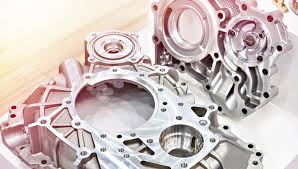Mobile:+86-311-808-126-83
Email:info@ydcastings.com
Durable Stainless Steel Impellers for Enhanced Performance and Longevity in Fluid Systems
The Significance of Stainless Steel Impellers in Modern Engineering
In the realm of modern engineering, the choice of materials plays a pivotal role in the performance, durability, and efficiency of mechanical components. Among the myriad of materials available, stainless steel stands out as a preeminent choice, especially when it comes to the fabrication of impellers. This article delves into the importance of stainless steel impellers, exploring their applications, benefits, and the reasons behind their widespread use in various industries.
Understanding Impellers
Impellers are crucial components in numerous machines, particularly in pumps and turbines. They are responsible for transferring energy from the motor to the fluid being moved, thereby helping to enhance the speed and flow of liquids or gases. The design and material of an impeller directly influence its performance, efficiency, and longevity.
The Role of Stainless Steel
Stainless steel, an alloy primarily composed of iron, chromium, and nickel, is ingeniously designed for resilience. The addition of chromium provides a layer of protection against corrosion, while nickel enhances its overall strength and ductility. These properties make stainless steel an ideal choice for fabrics where environmental factors, such as moisture or chemicals, could lead to degradation.
Key Benefits of Stainless Steel Impellers
1. Corrosion Resistance One of the most remarkable features of stainless steel is its resistance to rust and corrosion. This property is particularly beneficial in applications that involve water, brine, or other corrosive fluids. For instance, in the chemical processing industry, where impellers are often in contact with aggressive substances, stainless steel ensures that the components maintain their integrity over time.
2. Durability and Strength Stainless steel impellers can withstand extreme conditions without compromising structural integrity. Their high tensile strength helps them function effectively under pressure, making them suitable for heavy workloads in industrial applications.
stainless steel impeller

3. Easy Maintenance The smooth surface finish of stainless steel makes it easier to clean compared to impellers made from other materials. This cleanliness not only enhances operational efficiency but also minimizes the risk of contamination, which is crucial in sanitary applications, such as food and pharmaceutical processing.
4. Enhanced Efficiency The advanced design capabilities afforded by stainless steel allow for the creation of more intricate and efficient impeller shapes. This can significantly improve the fluid dynamics within a system, leading to lower energy consumption and better overall productivity.
5. Aesthetic Appeal In addition to their functional advantages, stainless steel impellers also offer aesthetic benefits. Their sleek, shiny surface not only exudes a modern look but also indicates cleanliness and quality, elevating the appearance of the machinery they are integrated into.
Applications of Stainless Steel Impellers
The versatility of stainless steel impellers means they are used in a variety of applications across different sectors. In the water treatment industry, for instance, they play a vital role in pumps that facilitate the movement of water and wastewater. In HVAC systems, stainless steel impellers are used in fan applications, ensuring efficient ventilation and air circulation.
Moreover, in the food and beverage sector, stainless steel impellers are crucial for mixing and pumping processes, as they comply with hygienic standards and are less likely to harbor bacteria. In the automotive industry, they can be found in fuel pumps and turbochargers, where reliability and performance are paramount.
Conclusion
In conclusion, the significance of stainless steel impellers in modern engineering cannot be overstated. Their robust properties, coupled with their adaptability to various applications, make them a cornerstone in the design of efficient and durable machinery. As industries continue to evolve and demand higher standards of performance, the reliance on stainless steel impellers is likely to grow, ensuring that they remain at the forefront of engineering solutions for years to come. By understanding and leveraging the advantages of stainless steel, engineers can drive innovation and enhance the reliability of mechanical systems across the globe.
-
Why Should You Invest in Superior Pump Castings for Your Equipment?NewsJun.09,2025
-
Unlock Performance Potential with Stainless Impellers and Aluminum End CapsNewsJun.09,2025
-
Revolutionize Your Machinery with Superior Cast Iron and Aluminum ComponentsNewsJun.09,2025
-
Revolutionize Fluid Dynamics with Premium Pump ComponentsNewsJun.09,2025
-
Optimizing Industrial Systems with Essential Valve ComponentsNewsJun.09,2025
-
Elevate Grid Efficiency with High-Precision Power CastingsNewsJun.09,2025











